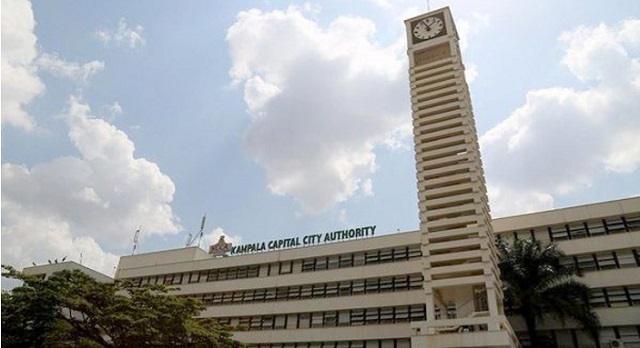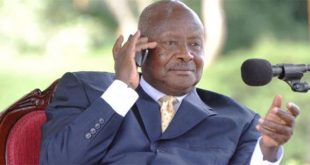
On the Kampala Minister portfolio, Ababiku said that it is an important position since the person in charge reports directly to Cabinet.
“You do not want to see the local government minister stretching his arm to Kampala that has specific issues to manage,” she said.
The Bill comes at a time the city authority appears to have gained capacity to do major development projects, collect revenue, and enforce ordinances. But problems of service delivery linger in the areas of health and sanitation, vending on the streets, operation of city markets, unplanned construction of commercial buildings, growing idle population, poor roads, illegal taxi and bodaboda stages, cases of theft and vandalism of city infrastructure. Most of these are worsened by budgetary constraints and political paralysis. The Bill is seen as a potential tool for solving these problems.
Amin Tamale Kiggundu, an urban planning expert and head of Architecture and Physical Planning department at Makerere University told The Independent that balancing politics is part of the technical work for KCCA.
He said that people’s participation in city activities is only possible through elected leaders.
“You cannot separate politics from city management,” he said, “It is very difficult to know where politics starts and ends in our country.”
What is necessary, Kiggundu said, is to have those in politics become mature, decent and follow the law in place while offering services to the people.
He said officials at City Hall must always consult the people of Kampala on what they want to see their city look like and implement policies that promote social transformation.
Going forward, Kiggundu said that both the political and technical wing of KCCA must invest more time in understanding the changing economic needs of the people of Kampala given that space is shrinking in favour of those who have and not those who do not have.
Opportunities in pipeline
Lukwago had a difficult time dealing with Musisi but sources at City Hall say his working relationship with the acting ED (Kitaka) is more cordial.
When asked to comment on whether disagreements between the political and technical wing was hindering city development, Peter Kaujju, the spokesperson for KCCA said, KCCA is a technical body and does not engage in any politics.
He said the authority has a good working relationship with the various stakeholders.
“We have periodical meetings and we submit weekly reports to the Minister of Kampala. We also report to the authority meetings chaired by the Mayor,” he said.
Meanwhile, Kaujju said that the authority continues to build on the achievements recorded during Jennifer Musisi’ time as ED.
“Things are flowing smoothly,” Kaujju said, “A leader worth her salt put in place systems which are running even after she left,” he said.
Latif Ssebagala, the Kawempe North Member of Parliament who has expressed interest for running for Kampala Mayor told The Independent that the Bill tries to give equal powers to all city wing managers.
He said that the Bill provides an opportunity for the Lord Mayor and Council Members to legislate and pass resolutions which would be carried and submitted to cabinet by the Kampala Minister to the Cabinet for consideration.
He also said removing the lord mayor as speaker clears the irregularity of having him/her with double and conflicting roles.
Ssebagala also said having speakers of council at division level empowers them to contribute to city development.
Ssebagala said that personal quarrels in the city management have to be avoided.
“Let everybody play their role; functions of each official are clear,” he told The Independent, “Conflicts among them will delay service delivery in Kampala.”
Why Kampala matters
Kampala is an important area on the map of Uganda. According to the 2014 National Population and Housing Census, its day time population was at four million while its resident population was at 1.5 million people.
By 2050, its population is projected to hit 12 million, according to a recent World Bank Report. The city takes the largest percentage of economic activities that happen in the country daily.
In 2018, a report published on March 20 by a global entity, Mercer ranked Kampala as the best city to live in East Africa. It was placed at position 172, 14 places ahead of its neighbor Nairobi (186) and Kigali was ranked the third best city to live in, with a global position of 190 on the Mercer. Dar es Salaam, Tanzania’s commercial city was ranked 199 out of 230 cities in the world.
Another 2017 Ease of Settling in Index report by ‘Expat Insider’, a Munich-based human resource consultancy firm, ranked Uganda the eighth best country in the world for expatriates to settle in. This survey was carried out in 65 countries.
 The Independent Uganda: You get the Truth we Pay the Price
The Independent Uganda: You get the Truth we Pay the Price




Kampala city be shifted to Nakasongola. Kampala is a village built anyhow. Nakasongoa is middle.
Democracy does not exist! What this is as always, is a veiled attempt at democracy which happens to be utopian because it does not work in case things need to get done with the least possible contention . Just imagine there was ‘democracy’ in the police or armed forces, would it accomplish anything save for annihilating what they initially would have set out to protect and achieve? Structures are useless in democracy because it would mean everyone does as they please in pretense of doing their work which is to serve the people. Once you have structures, it really ceases to be a democracy. At this point it becomes a web of entangled consequences with out a decoding political algorithm in near sight, given the wrong and possibly the worst interpretation of ‘democracy’ burned into our sub-conscience. It is a niche that will continue to be exploited unless the masses effectively alter their definitions and interpretation of the key aspects affecting their lives.